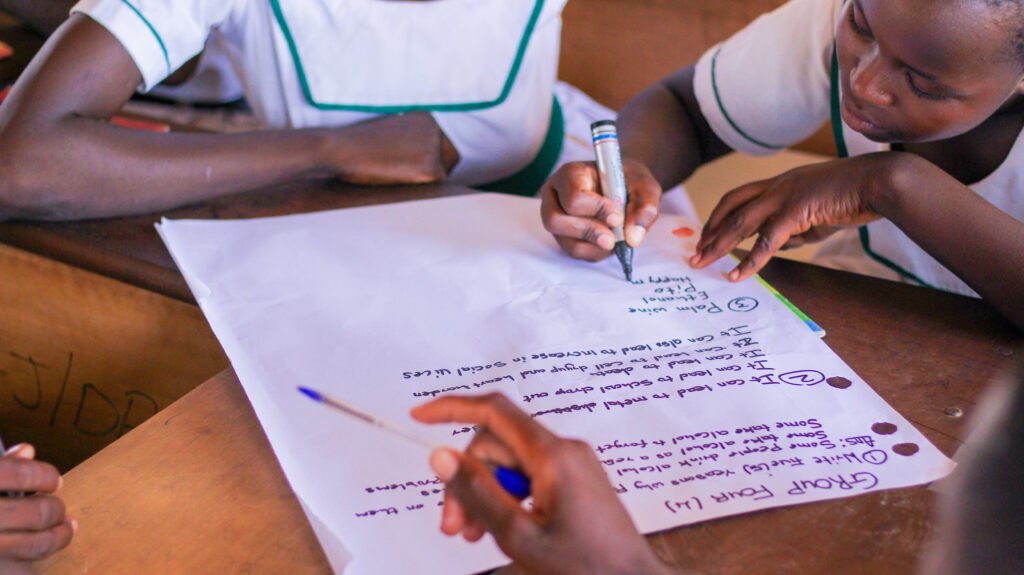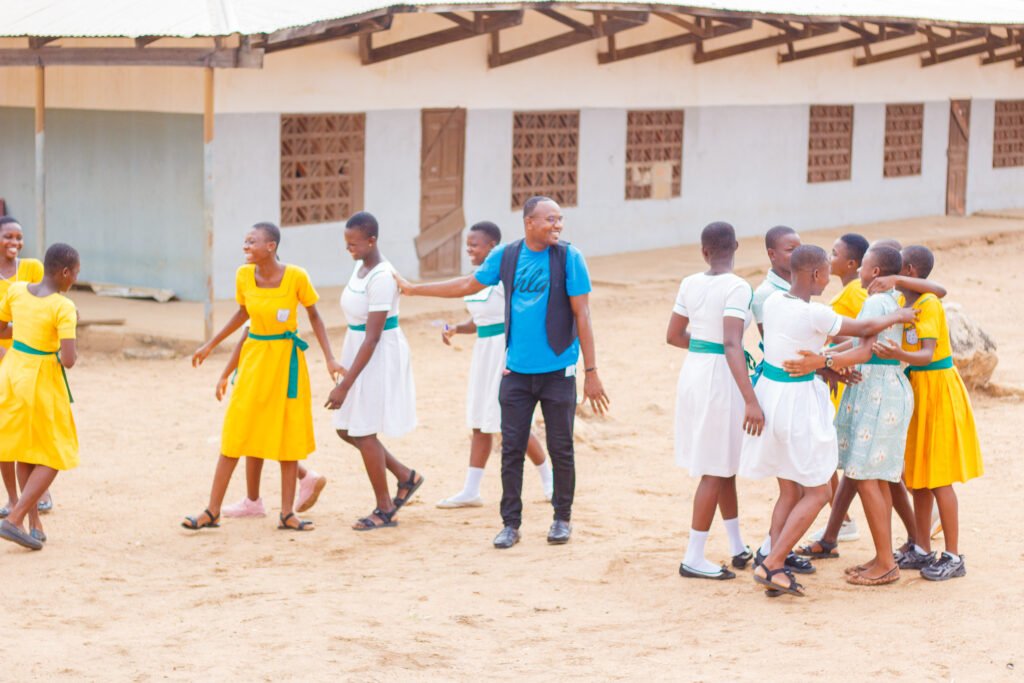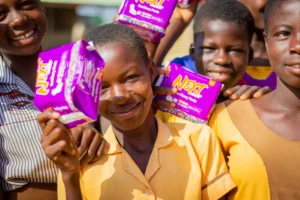For more than six years, Homeland Ghana has spent time with children in community schools, listening to their experiences and learning about the challenges they face. In 2022, we introduced school workshops for children aged 9 to 19 to help them talk openly about issues that affect their daily lives, including child rights, alcohol use, child marriage and teenage pregnancy.
These sessions are led by our facilitators, Wisdom and Sulemana, who work directly with students and help them understand their rights, their choices and their safety.
What Happens During the Sessions
Wisdom, a health nurse by day, leads our sessions on alcohol awareness. His work is especially important because alcohol use among young people in Ghana is far more common than many adults realise. National studies show that about 34% of Ghanaians reported drinking alcohol within the last month, and among school-aged children, 12.6% say they currently drink, with some starting as early as age 14. These numbers remind us that the issue is not distant or abstract, it is happening in the same communities where our students live and learn.
“In many of the communities I visit, alcohol is very easy for children to access,” Wisdom explains. “Some are even asked to buy or help sell it at home. I help them understand the effects of alcohol abuse so they can make safer decisions.”
Sulemana teaches children about their rights. Through our partnership with the Department of Social Welfare, he brings his experience from the department directly into the classroom.
“I talk to children about what abuse looks like and how to report it,” he says. “I also sit with parents and caregivers so they understand their role in keeping children safe. When adults know what to look out for, the whole community becomes more protective of its young people.”

What Children Share With Us
When children feel safe enough to speak, they begin to share what their lives truly look like. Their stories reveal how deeply their home and community environments affect both their education and their rights.
Many students tell us that corporal punishment is simply “normal discipline.” A 2016 survey showed that more than 90 percent of children in Ghana had experienced physical or psychological aggression at home in the previous month. Experiencing fear or harsh punishment in the spaces meant to nurture them makes it harder for children to focus, participate confidently or believe in their right to feel safe.
Some children miss school because they are needed on family farms. National data shows that about 21 percent of children between the ages of 5 and 17 in Ghana are involved in child labour. When a child’s morning begins in the field instead of the classroom, their right to an uninterrupted education is weakened, and their opportunities to learn, rest and grow are limited.
Girls often arrive at school already tired, having woken up long before dawn to complete household chores. Fatigue affects their concentration, reduces classroom participation and quietly shapes how they see their own potential.
Other students tell us they are sent to buy or help sell alcohol at home. This early and close exposure places them at risk and goes against the protections outlined in Ghana’s Children’s Act, which is meant to shield children from harm and exploitation. When laws that should protect children are not enforced in local communities, young people lose not only safety but also trust that their rights matter.
These realities remind us of something important. Education is influenced by far more than textbooks or teachers. It is shaped by the safety a child feels, the burdens they carry before they get to school and the community’s understanding of what a child deserves.
Through our partnership with the Department of Social Welfare, we work to ensure that these stories are heard and acted upon. Every child deserves a classroom where they can arrive rested, confident and protected. Every child deserves to know that their rights are real.





